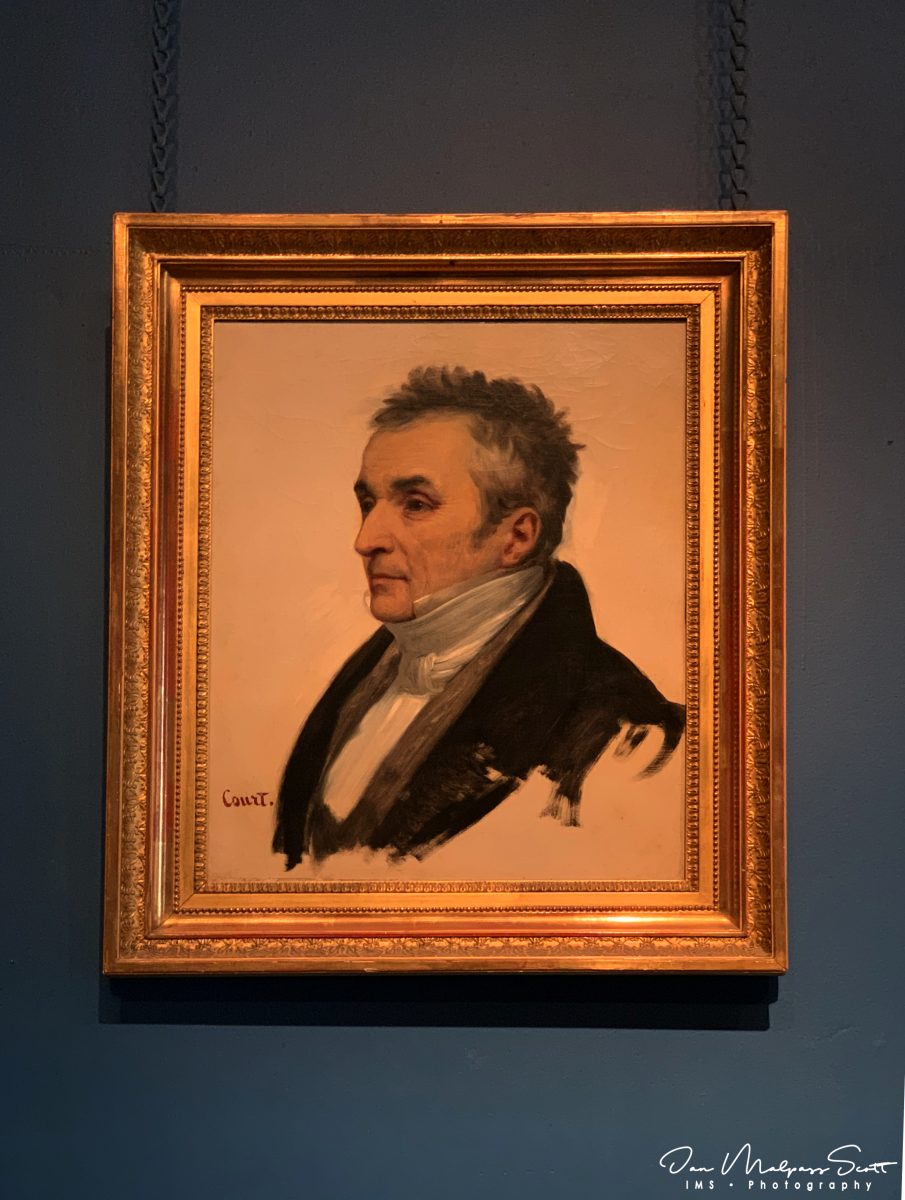Portrait of François Guizot at the Bowes Museum, Barnard Castle, Co. Durham
-
Title: Portrait of Francois Guizot
-
Object number: B.M.490
-
Collection: PAINTINGS
-
Creator: Joseph-Désiré (1797-1865) Court
-
Production place: France
-
Date: 1820 – 1835
-
Production period: 19th century
-
School/style: French
-
Object name: French School of Paintings
-
Material: Canvas
-
Technique: Oil
Joseph-Désiré Court (September 14, 1797 – January 23, 1865) was a French painter of historical subjects and portraits.
Court was born at Rouen. He became a pupil at the École des Beaux-Arts under Gros, and after carrying off the principal honours there pursued his studies still further at Rome. High expectations were formed of him when he exhibited in 1827 The Death of Caesar, a work manifesting earnest thought, and a conscientious handling of the facts of history. It is now in the Musée Fabre in Montpellier. Having shown himself in this and other works a vigorous painter, capable of seizing a subject with a masterly grasp, and having also in the region of portrait painting proved himself an artist of no common merit, he eventually dissipated his talents in the production of a series of empty official pictures painted by order of Louis Philippe. He died in Paris in 1865. The Bordeaux Museum has a portrait of Henri Fonfrède by him; that of Lyons, a Scene from the Great Flood; that of Rouen, Boissy-d’Anglas saluting the head of Féraud.
François Pierre Guillaume Guizot (French: [fʁɑ̃swa pjɛʁ ɡijom ɡizo]; 4 October 1787 – 12 September 1874) was a French historian, orator, and statesman. Guizot was a dominant figure in French politics prior to the Revolution of 1848. A moderate liberal who opposed the attempt by King Charles X to usurp legislative power, he worked to sustain a constitutional monarchy following the July Revolution of 1830.
He then served the “citizen king” Louis Philippe, as Minister of Education, 1832–37, ambassador to London, Foreign Minister 1840–1847, and finally Prime Minister of France from 19 September 1847 to 23 February 1848. Guizot’s influence was critical in expanding public education, which under his ministry saw the creation of primary schools in every French commune. But as a leader of the “Doctrinaires”, committed to supporting the policies of Louis Phillipe and limitations on further expansion of the political franchise, he earned the hatred of more left-leaning liberals and republicans through his unswerving support for restricting suffrage to propertied men, advising those who wanted the vote to “enrich yourselves” (enrichissez-vous) through hard work and thrift.
As Prime Minister, it was Guizot’s ban on the political meetings (called the campagne des banquets or the Paris Banquets, which were held by moderate liberals who wanted a larger extension of the franchise)[3] of an increasingly vigorous opposition in January 1848 that catalyzed the revolution that toppled Louis Philippe in February and saw the establishment of the French Second Republic.


